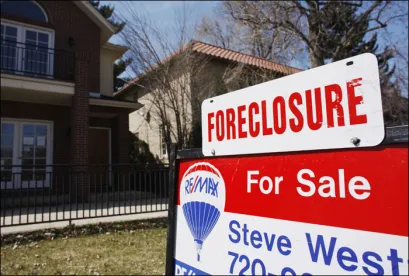The plaintiffs (“Plaintiffs”) in Gunter-King v. Wells Fargo Bank, N.A., Civil Action No. 18-11316 (JBS/JS), 2018 U.S. Dist. LEXIS 209443 (D.N.J. Dec. 12, 2018), defaulted on their loan obligation on or about July 2012 and a foreclosure suit was filed in May 2015. On February 3, 2016, they entered into a consent order allowing the foreclosure suit to proceed to final judgment as an uncontested matter. On July 19, 2016, the Court granted a final judgment of foreclosure (“Final Judgment”).
Despite their consent, after the Final Judgment was entered, the Plaintiffs filed at least five additional motions in state court to prevent the foreclosure sale. All of the motions were denied.
Less than a month later, on July 2, 2018, the Plaintiffs filed a twenty-one count complaint in federal court arising from the same set of mortgage and foreclosure circumstances that were already litigated in state court. The complaint included alleged violations of the Fair Credit Reporting Act (“FCRA”) along with everything else, including the kitchen sink.
The defendants filed a motion to dismiss pursuant to Fed. R. Civ. P. 12(b)(1) and 12(b)(6). The Court granted the motion to dismiss for two reasons.
First, the Court held that it lacked subject matter jurisdiction to hear the case under what is colloquially known as the “Rooker-Feldman doctrine.” Under Rooker-Feldman, federal courts, other than the U.S. Supreme Court are precluded from exercising appellate jurisdiction over final state court judgments. See Lance v. Dennis, 546 U.S. 459, 463 (2006). Generally, the issue arises when a party tries to get a second bite at the apple by filing a new case based on the same events, in federal court, after an unfavorable final judgment in state court.
The Court held that all four elements Rooker-Feldman were present: “(1) Plaintiffs lost in state court and a Final Foreclosure Judgment was entered by the Superior Court on July 19, 2016, and affirmed by the Superior Court on June 8, 2018; (2) all of the injuries alleged by Plaintiffs, including the foreclosure and impending loss of their property, directly resulted from the Final Foreclosure Judgment itself; (3) the Final Foreclosure Judgment was entered prior to the filing of this suit; and (4) Plaintiffs are clearly inviting this Court to collaterally review (and reject) the Superior Court’s decisions in the Foreclosure Action and set aside the Final Foreclosure Judgment. Gunter-King, 2018 U.S. Dist. LEXIS 209443 at *8.
Second, – and this is important, especially if you do business in New Jersey – the Court dismissed under New Jersey’s “entire controversy doctrine,” found in Rule 4:30A of the New Jersey Court Rules. The doctrine requires litigants to assert all affirmative claims relating to the controversy (including counterclaims) between them in one action, and to join all parties with a material interest in the controversy, or be forever barred from bringing a subsequent action involving the same underlying facts. See Paramount Aviation Corp. v. Agusta, 178 F.3d 132 (3d Cir. 1999).
The application of the entire controversy doctrine turns on three criteria: “(1) the judgment in the prior action must be valid, final, and on the merits; (2) the parties in the later action must be identical to or in privity with those in the prior action; and (3) the claim in the later action must grow out of the same transaction or occurrence as the claim in the earlier one.” Gunter-King, 2018 U.S. Dist. LEXIS 209443 at *8, citing Watkins v. Resorts Int’l Hotel and Casino, Inc., 591 A.2d 592, 599 (N.J. 1991)).
Here, although the FCRA claims were not asserted in the state court foreclosure action, the underlying facts were essentially the same. Both cases alleged impropriety with respect to the foreclosure.
Further, in New Jersey foreclosure actions specifically, the entire controversy doctrine requires that all “germane” claims be joined in the first action; otherwise, they are barred. N.J. Ct. R. 4:64-5. New Jersey Federal Courts have held that the entire controversy doctrine encompasses “all statutory, common law, and constitutional claims relating to a foreclosure action and the underlying mortgage or tax transaction that led to the foreclosure.” See Bembry v. Twp. of Mullica, 2017 WL 3033126, at *3 (D.N.J. July 17, 2017).
Thus, the Court held, even if some of Plaintiffs’ claims in this action are styled as federal causes of action, i.e. the FCRA cause of action, Plaintiffs cannot escape the fact that their claims in both courts share the same factual essence and are thus, barred by the New Jersey entire controversy doctrine.



 />i
/>i

